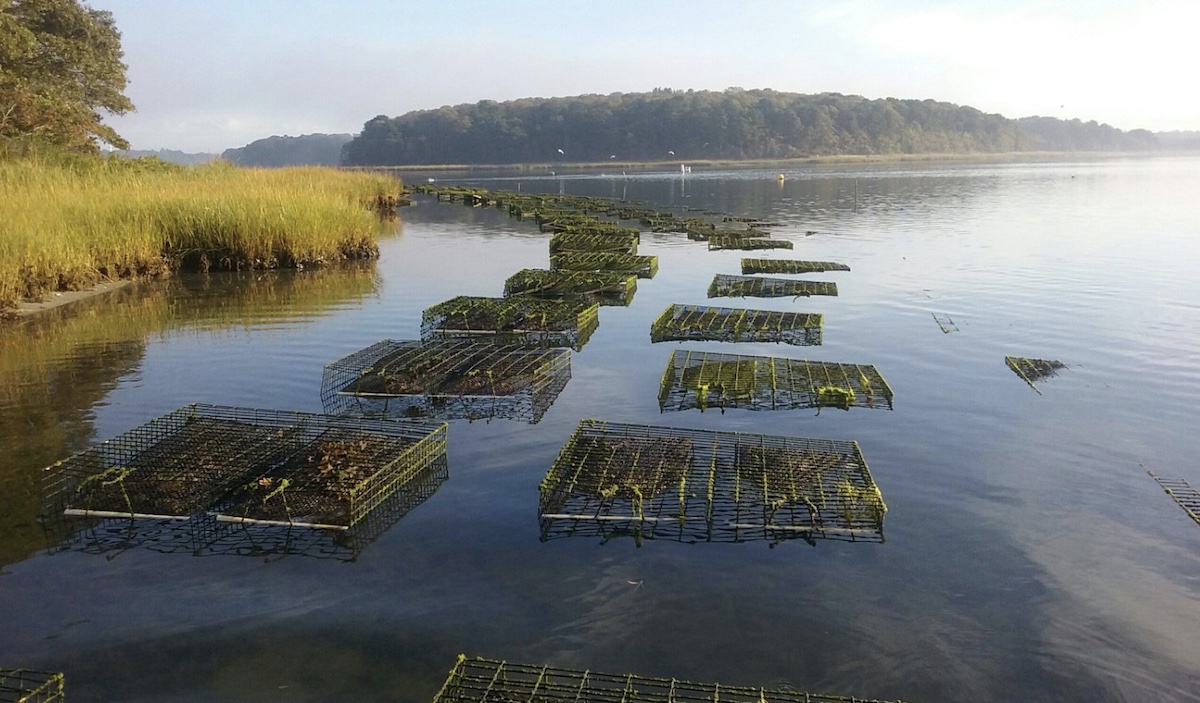
- Details
- By Elyse Wild
- Food | Agriculture
MASHPEE, Mass. — The Mashpee Wampanoag Tribe plans to leverage a new federal grant to revive its First Light Farms aquaculture business, which fell on hard times at the onset of the COVID-19 pandemic.
The tribe recently received word that it would receive $1.1 million in grant funding from the Commerce Department’s Economic Development Administration. The funding comes as part of the American Rescue Plan Act-funded Indigenous Communities Program, a $100 million (EDA) initiative to assist tribal communities affected by the pandemic.
“It is a great blessing to rejuvenate and give the tribe some economic resources to get this off of the ground,” Mashpee Wampanoag Vice Chairman Carlton Hendricks told Tribal Business News.
First Light Shellfish Farm operates on 12 acres of Popponesset Bay in the southwest region of Cape Cod under a lease agreement with the Town of Mashpee.
Mashpee’s water systems are among the most polluted in the state. A 2021 report revealed the water quality in Popponesset Bay was at an all-time low, far exceeding nitrogen levels deemed safe by the Massachusetts Department of Environmental Protection and the Environmental Protection Agency.
The tribe first launched First Light Shellfish Farm in 2009 as part of the Popponesset Bay Restoration Project, an initiative to improve water quality through oyster propagation, which removes harmful nitrogen levels from water. An EPA report found that the tribe's efforts had helped with water quality, as indicated by the halt in habitat degradation and fish kills.
Hendricks said along with improving water quality, the tribe was making just enough money to pay for tribal workers to maintain the farm by harvesting and selling the shellfish. Then the pandemic hit.
“COVID really hurt us economically and with losing resources,” he said.
The tribe was forced to lay off the workers at the farm. Without teams to maintain the operation, large populations of shellfish died.
The EDA grant will be a substantive boon in restoring the farm operations by financing oyster seed and supplies; supporting five employees — three full-time and two part-time — on the farm for two years; as well as administrative staff and resources needed to make the farm a profitable business for the tribe.
For Hendricks, who has been a member of the tribal council since 2010 and was elected to vice-chair this May, getting First Light Farms up and running and viable has been a priority. “Once elected, one of my first initiatives was to seek funding to try to get the shellfish farm back operating,” Hendricks said. “Shellfish propagating is something our tribe has been doing for a long time.”
Descendents of the Mashpee Wampanoag Tribe have been living on the coastal lands of Cape Cod for more than 12,000 years and were famously encountered by the English colonists of the Plymouth Colony in the 17th Century.
The tribe, also known as the People of the First Light, filed for federal recognition in 1976, finally receiving acknowledgement in 2007. According to the Mashpee Wampanoag website, the tribe has 2,600 enrolled tribal members. Its land holdings, designated in 2015, cover 170 acres in the town of Mashpee, located on Cape Cod, and 150 acres in the City of Taunton, 50 miles west of Mashpee.
According to Hendricks, the tribe also plans to apply for a second round of funding to finance a housing facility to buy and sell wholesale fish.
“This grant has a great impact on us being able to scale to that,” Hendricks said.
The grant is the latest in a series of wins for the tribe. From 2016 to 2020, The Mashpee Wampanoag were embroiled in a legal battle with landowners in Taunton opposed to the tribe’s plans to build a casino. The lawsuit escalated, and in 2020, the Trump administration announced the decision to remove the 320 acres of land and revoke the tribe's reservation designation on the grounds that the Department of Interior did not have authority to take tribal land into trust for the benefit of the tribe. However, the decision was blocked by a federal judge, and in December 2021, the Biden administration reaffirmed the Wampanoag's reservation status.
With the most recent EDA grant, Hendricks credited support from Massachusetts’ U.S. Senators — Ed Markey and Elizabeth Warren, both Democrats — for helping to secure the funding, calling them “ instrumental in this getting done.”
“Tribal communities have a unique stake in the health and future of our Commonwealth's aquaculture industry,” Markey said in a statement, in which he also commended the tribe’s “steadfast commitment” to reviving the operations. “This million-dollar grant to the Mashpee Wampanoag Tribe will serve the community in its efforts to create jobs and pass on unmatched expertise in aquaculture techniques and shellfish farming.”
Warren echoed those sentiments.
“I voted for the American Rescue Plan in part because it would benefit tribal nations, so I’m very glad that the EDA is providing this grant to the Mashpee Wampanoag Tribe to support its Shellfish Farm,” Warren stated. “This $1.1 million grant will help promote economic development for the Tribe, offer workforce training programs, and advance the Tribe’s growing aquaculture industry.”
